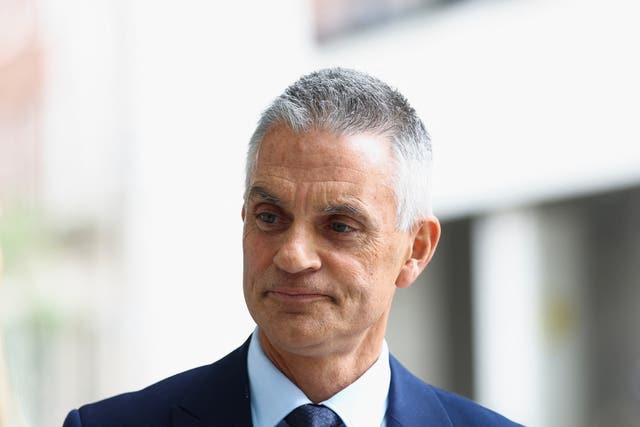Pressure remains for BBC chairman as Lineker row deepens political faultlines
The row over Gary Lineker’s comments come at a difficult time corporation, which is marking its centenary.

BBC chairman Richard Sharp is under growing pressure, after the controversy ignited by the Gary Lineker impartiality row placed fresh scrutiny on the corporation’s independence.
The reinstatement of the 62-year-old former footballer as Match of the Day host and apology from Director-General Tim Davie for the “difficult period” brought the row to a close, after Mr Lineker was taken off air for a tweet comparing the language used to launch a new Government asylum seeker policy to that of 1930s Germany.
The comments and the BBC’s reaction divided politicians, with Mr Lineker lambasted by Conservatives for his intervention even as Labour and others hailed his stand.
It comes at a difficult time for the corporation, which is marking its centenary.
The BBC faces a squeeze on funding and competition from commercial rivals and streaming platforms, with ongoing controversy over plans for local radio stations to share more content and broadcast less unique programming as part of a shift to digital services.

But even as Mr Lineker celebrated the end of his brief on-screen absence, questions continued to be asked of Mr Sharp and Mr Davies as various commentators criticised the “muddle” over impartiality and “mess” of recent days.
Sir Keir Starmer said that Mr Sharp’s position was “increasingly untenable”, amid an ongoing review after it emerged he had helped former prime minister Boris Johnson secure an £800,000 loan facility.
As the investigation undertaken into his appointment continues, Rishi Sunak also refused to explicitly back the corporation chairman.
But the Prime Minister has faced questions too over the row, with Labour accusing the Conservatives of long seeking to undermine the public service broadcaster and Number 10 seemingly distancing itself from the remarks of ministers about the former England star.
Commons leader Penny Mordaunt was among those targeting the former footballer last week, accusing Labour of “borrowing from the Gary Lineker playbook” by being the “party of goal hangers” taking easy shots against the Government.
Downing Street on Monday refused to endorse those comments and insisted rules for employees were a matter for the BBC, as a spokesman said: “We are pleased that this situation has been resolved and that fans will be able to watch Match Of The Day as normal this weekend.”
Labour’s shadow culture secretary Lucy Powell said: “The Tory Government have long wanted to undermine the BBC.

“They appointed a BBC chair now subject to investigation over his personal links to the Conservative Party.
“The ongoing uncertainties around the future of the BBC are keeping it over a barrel and making it susceptible to political campaigns orchestrated by ministers, MPs and the right-wing press,” she said.
Other top Labour MPs were quick to get behind Mr Lineker on Monday after the BBC released a statement confirming that the presenter “will abide by the editorial guidelines” until a review of the BBC’s social media policy is complete.
Shadow health secretary Wes Streeting referenced Mr Lineker’s reaction on Twitter, saying simply: “Pure class.”
David Lammy, the shadow foreign secretary, said welcomed his return, saying it “should never have come to this”.
“The BBC should not cower to the populist whims of Tory politicians and right-wing media frenzies.”
Conservative MPs appeared less enthused. Backbencher David Jones tweeted: “A review. Decisive. Not procrastinating at all.”
Jacob Rees-Mogg, the former Cabinet minister and long-time BBC critic, linked the row to the future of BBC funding as he warned that the “licence fee has passed its sell-by date”.
“He (Gary Lineker) can say what he likes. The issue is that the BBC is the state broadcaster and that it’s funded by a tax on televisions. If it weren’t, then we wouldn’t need to worry about its impartiality,” he told GB News.




